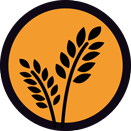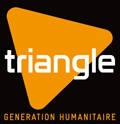AREA OF EXPERTISE

Food security and livelihoods

AREA OF EXPERTISE

Food security and livelihoods
FUNDING
The development of this farm has 2 main objectives:
The Sahrawi refugees living in the 5 camps in the Tindouf Region almost exclusively rely on humanitarian assistance because income-generating activities are scarce and environmental conditions are extremely unfavourable. In this context, TGH has set up a fish farm to enable the breeding of fresh fish at the local level.
The year 2020 will see the first productions that will enrich the Sahrawi population's diet with animal proteins. Tilapia is a fish that is highly appreciated in fish farms, both in Asia and on the African continent. It is particularly resistant to extreme thermal and mineralogical conditions, making it the ideal fish for the fish farm of N Khaila, located in the Algerian desert. Given the arid climatic conditions of the region and the lack of precedent in aquaculture production, this pilot project needs to ensure the technical accuracy of this experiment in order to consider a gradual deployment of the initiative and its subsequent development on a larger scale.
The objective is not only to strengthen animal protein intakes for the populations but also to enable local capacity building and increase the economic autonomy of the people living in the area.
The fish farm, also used as a training centre, could enable Sahrawi youth to benefit from private foreign investment supporting the launch of tilapia micro-growing units.
In total, the training sessions will benefit the 12 employees of the fish farm as well as 20 Saharawi youth who will receive training in entrepreneurship. Regarding fish production, 80% of the production will be purchased, then integrated into the food baskets of partner organisations, before being distributed to the beneficiaries. The remaining 20% of the production, i.e. 1,400kgs, will go to people with disabilities (249 beneficiaries).